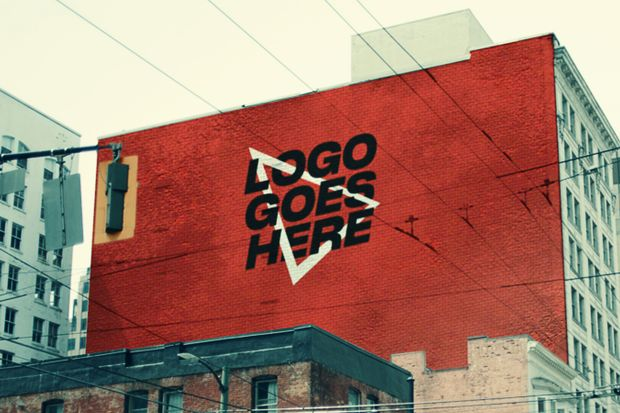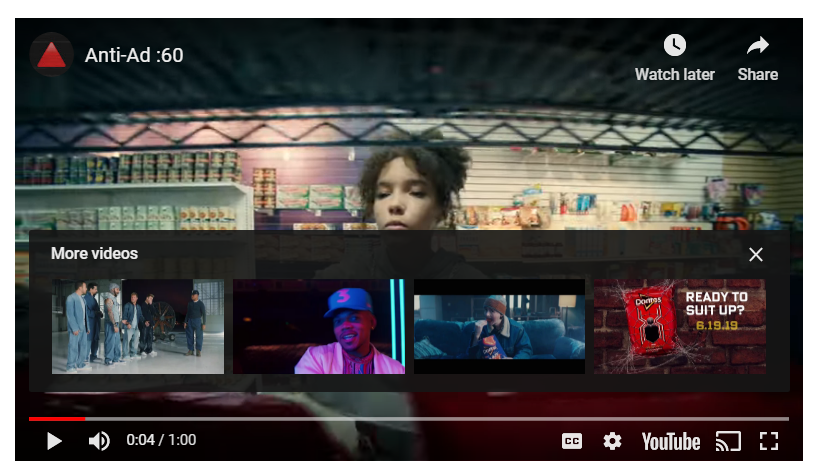Answers

Sep 01, 2019 - 12:27 PM
Image via Pixabay
Marketers know, across the board, that traditional ads don’t work the way they once did. Consumers on the whole (but yes, millennials in particular) are more mistrustful of brands than they used to be, and harder to impress.
Ads also must compete with a bigger pool of other ads today. While ads once ran against each other in more limited spaces, like the newspaper or during commercial breaks, they now all swim in the vast ocean of the internet. Ads do still run in those conventional spaces too, but brands really need to find ways to grab consumers’ attention online if they want to stay relevant.
Brands have tried to stay internet-relevant in countless ways so far, some better than others. There’s influencer marketing, guerilla marketing, pop-up events, and much more. But brands also don’t really want to give up on the power of traditional ads - they just want to find a way to make them work.
Commercials, billboards, and other advertising traditions aren’t going to disappear anytime soon, even as they work less and less well. Brands already have everything in place to make those ads, so it’s easier to try to make traditional ads work for modern shoppers than it is to totally overhaul their marketing departments. Doritos really wants traditional ads to still work, because if they don’t, then drastic (expensive) advertising changes are needed. This name removal is an attempt to make those conventional ads more interesting to today’s jaded consumers.

Image via Pixabay
Is There Value in “Name-Dropping”?As your question makes quite clear, you’re not a millennial - and you’re also not comfortable with the idea of a brand selling you something without the name attached. But why do you find this tactic, out of all the ways a brand could sell you stuff, so off-putting?
If you see the Pepsi logo, you will probably think about Pepsi. You don’t need to see the name to know the brand. Now, you may not go right out and buy a Pepsi, but seeing the logo alone is enough to put the brand in your mind.
The same applies for the logos of BMW, McDonald’s, Nike, and countless other brands. When you see the modern, nameless Starbucks logo, you don’t wonder where that coffee cup came from. While many brands don’t enjoy this level of recognition, some are just too big to ignore.
Brands like Doritos can flex this muscle by deliberately leaving their names out of ads and logos. Admittedly, it’s kind of obnoxious: the brand is bragging about its recognizability. But I don’t think this tactic merits the kind of vehemence with which you seem to oppose it. And it does have value, although it won’t magically push consumers (even millennials) to buy.
When a brand removes its name from its logo, it takes a place in the modern online world of symbols, slang, and shorthand. It’s a very fitting move in the age of the internet. To a young consumer, a single word or image can carry complex meaning, thanks to the rapidly-moving online world of memes and abbreviated communication. For example, few people under the age of 40 use the eggplant emoji to talk about eggplants.
Doritos is trying to flex its power, but also to show, with a coy nod, that it fits in this modern world of quick messages and hidden meanings. And maybe not everyone is meant to “get it” - consumers who recognize the brand might feel a little bit special for solving the (very simple) puzzle.
Has the tactic measurably increased sales yet? Only Doritos knows. But it certainly has increased brand awareness, since so many people (yourself included) are now talking about Doritos thanks to these new ads.

Image via Pixabay
Do Brands Really Need Millennials?While I understand that millennials are the popular scapegoats for many personal pet peeves, this form of advertising actually has much more to do with gen Z. Brands are still struggling to figure out what makes gen Z tick. Doritos’ attempt to seem sassy and subversive may not ultimately resonate with these young shoppers, but it’s almost certainly an attempt to.
Millennials, as people often forget, can be nearly 40 years old. While they, too, use memes and emojis heavily, they don’t rely on quick online symbolism nearly as much as gen Z does. They also may not be quite as ad-adverse as gen Z, since most millennials did grow up with conventional ads in the days before smartphones and Netflix.
And to answer your question: yes, brands should absolutely be sucking up to “these finicky millennials” (and gen Z too). Gen Z and millennials together account for about a third of the world’s total population. What brand wouldn’t want their attention?
Doritos’ advertising tactic, regardless of your personal thoughts about it, is well thought out and has the potential for success. Doritos is certainly not the first brand to deliberately drop the name from an ad or logo, and it surely won’t be the last. In fact, once a brand reaches a certain level of power, dropping the name can become a mark of success. It makes a statement: “Look how recognizable we are.”
I won’t pretend to understand your vitriol toward people under 40, or this relatively harmless advertising tactic. But I will suggest that if you want something to hate on, you could turn your attention to advertising’s more harmful trends, like Facebook’s scandalous lack of transparency. I hold no love for Doritos, but getting angry about a brand dropping its name from ads is a strange hill to die on.
Sep 03, 2019 - 02:03 PM
After tasting Takis, I no longer desire Doritos, which now seem bland and unsatisfying. Of course doritos still has the logistics might of PepsiCo behind it, such that it's virtually impossible to find a grocery store or gas station that doesn't sell them. I don't see how you can compete with PepsiCo even if you have a better product.










Add New Comment